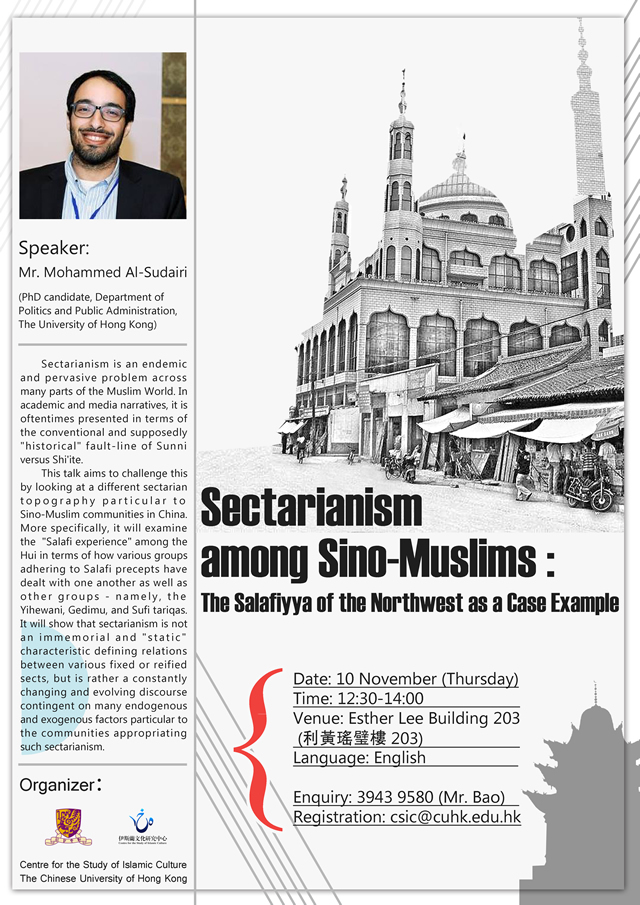>> About Us
In order to promote the discipline in Hong Kong, the Research Institute for the Humanities (RIH) of The Chinese University of Hong Kong (CUHK) came to an agreement with the Islamic Cultural Association (Hong Kong) on 31 July 2013. With sponsorship provided by the latter under the agreement, RIH launched the ‘Islamic Studies Initiative’ (ISI) on 13 September 2013. On 12 May 2015, ISI was approved by the management of the university to become the Centre for the Study of Islamic Culture (CSIC).
>> Contact us
(852) 3943-9580
(852) 3943-4785
LG13I, Leung Kau Kui Building, The Chinese University of Hong Kong, Shatin, New Territories, Hong Kong
Sectarianism among Sino-Muslims: The Salafiyya of the Northwest as a Case Example
Release time:2016-11-6 11:30:56
Date: 10 November 2016, Thursday
Time: 12:30-14:00
Venue: Esther Lee Building 203 (Exit A, University Station)
Speaker: Mohammed Al-Sudairi (PhD candidate, Department of Politics and Public Administration, The University of Hong Kong)
Language: English
Abstract:
Sectarianism is an endemic and pervasive problem across many parts of the Muslim World. In academic and media narratives, it is oftentimes presented in terms of the conventional and supposedly "historical" fault-line of Sunni versus Shi'ite. This talk aims to challenge this by looking at a different sectarian topography particular to Sino-Muslim communities in China. More specifically, it will examine the "Salafi experience" among the Hui in terms of how various groups adhering to Salafi precepts have dealt with one another as well as other groups - namely, the Yihewani, Gedimu, and Sufi tariqas. It will show that sectarianism is not an immemorial and "static" characteristic defining relations between various fixed or reified sects, but is rather a constantly changing and evolving discourse contingent on many endogenous and exogenous factors particular to the communities appropriating such sectarianism.




